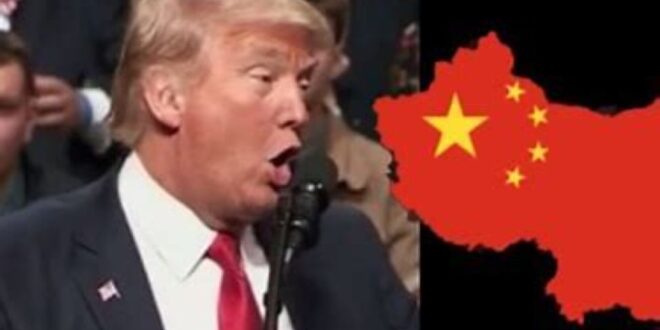Former President Donald Trump has reignited global trade tensions with a bold move that targets China while giving other nations temporary breathing room. In a surprise announcement, Trump unveiled a sweeping 125% tariff hike on all Chinese imports, while granting a 90-day delay for U.S. allies to negotiate exemptions.
The move, which Trump characterized as a “corrective action to decades of unfair trade,” marks one of the most aggressive steps in his renewed push for economic nationalism amid his 2024 campaign comeback.
“We’ve been taken advantage of for far too long,” Trump said during a press briefing at his campaign headquarters. “China’s manipulation and theft have cost American jobs and industry—we’re putting an end to it.”
Markets React Swiftly
Markets responded with immediate volatility. The Dow Jones fell nearly 400 points in early trading, while tech and manufacturing stocks saw sharp declines. Meanwhile, the yuan tumbled against the dollar, and Chinese officials issued a swift rebuke.
In a statement, China’s Ministry of Commerce called the move “an act of economic aggression” and warned of “strong countermeasures.”
Allies in Limbo
While China takes the brunt of the action, countries including Canada, Mexico, Germany, Japan, and South Korea were granted a 90-day delay—an opportunity to negotiate terms or seek exemptions from potential similar tariffs.
Analysts say the move is both a strategic economic play and a geopolitical message.
“Trump is reasserting his America First stance, but this time with more leverage and less subtlety,” said Carla Martinez, a trade policy expert at the Peterson Institute. “The 90-day window gives him room to maneuver diplomatically while keeping pressure high on China.”
Campaign Implications
With the 2024 election results still being contested in key states, Trump’s trade stance is seen as a rallying cry to his base—and a signal to corporate America that he intends to reshape global commerce if returned to the White House.
Supporters hail the tariffs as a bold move to protect U.S. industry, while critics warn they could trigger inflationary pressures and retaliatory tariffs that could hurt American exporters.
Trump’s announcement raises the stakes for U.S.-China relations and throws another curveball into the global economic recovery. With talks expected to resume in coming weeks, all eyes will be on whether Beijing retaliates—and how allies respond to the ticking 90-day clock.
 Business Sandesh Indian Newspaper | Articles | Opinion Pieces | Research Studies | Findings & News | Sandesh News
Business Sandesh Indian Newspaper | Articles | Opinion Pieces | Research Studies | Findings & News | Sandesh News



